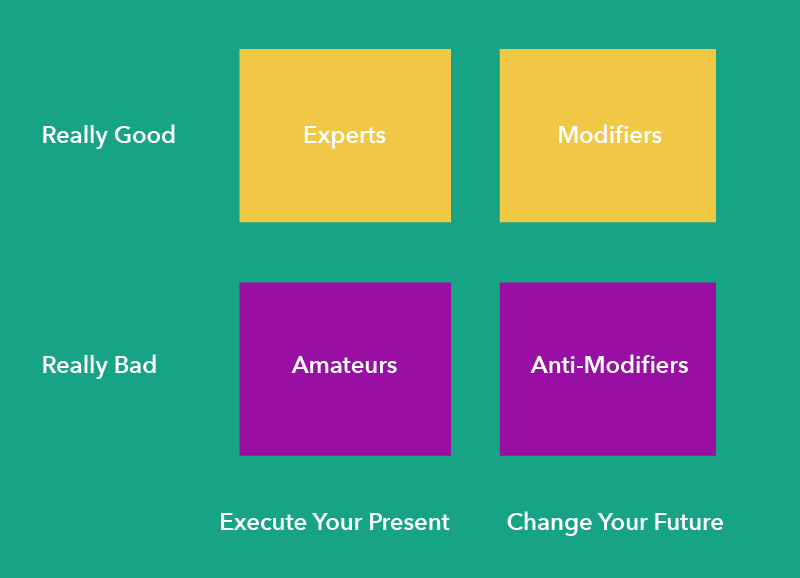
A really useful way to update your understanding of how the brain works:
Rather than left/right brain, it's important to add a third: center brain.
The inner brain is where you evaluate memory, relationships, and fear, to name a few.
...
Rather than left/right brain, it's important to add a third: center brain.
The inner brain is where you evaluate memory, relationships, and fear, to name a few.
...
When we make decisions, it's not just about logic vs creativity. It's the balance of logic, creativity, memory, relationships, and fear, at a minimum.
Most people that we call left-brained aren't left-brained at all. They are center-brained. They don't operate on logic, they operate on memory, which is entirely different.
People that operate on memory do things like they've done them before. They stick with what they know. They want to be trained in how to do things before attempting to do them. They tout their years of experience and relevant knowledge and expertise.
These are all valuable things, in the right circumstances. In others, memory is the mortal enemy of brilliant strategy, planning, and execution.
When there is a conflict between what we see right now and what's in our memory (what's familiar, trained, understood), most center-brained people experience immense stress. That stress can even manifest itself as hostility.
You can see that in the fist pounding and insults thrown around by people who defend the status quo, existing beliefs, and who want their ideas to win without examination or alteration.
The center brain is a very emotional brain. While many center-brained folks claim to be unemotional (because they experience less sadness, depression, elation...), they are actually exceptionally emotional people, highlighted by their unusually-high levels of sensitivity & anger.
To properly identify a left-brained person, you'll notice that they actually toss memory aside fairly readily. They delight in the conflict that appears between new ideas and held beliefs.
They investigate those differences, eager to update their mental models and bond with both new thinking and the people who brought that thinking into the room (while center-brained people are hostile toward those people).
So I'd strongly suggest that we stop talking about left vs. right brained people, because that's how we end up hiring so many sensitive, irritable, uncooperative, hostile "experts."
Add center-brained to your vocabulary and start to pay attention to its force in yourself and in others. This small update to your mental model of how peoples' brains are processing the world around them can make a huge difference, especially if you lead teams or projects.
• • •
Missing some Tweet in this thread? You can try to
force a refresh



